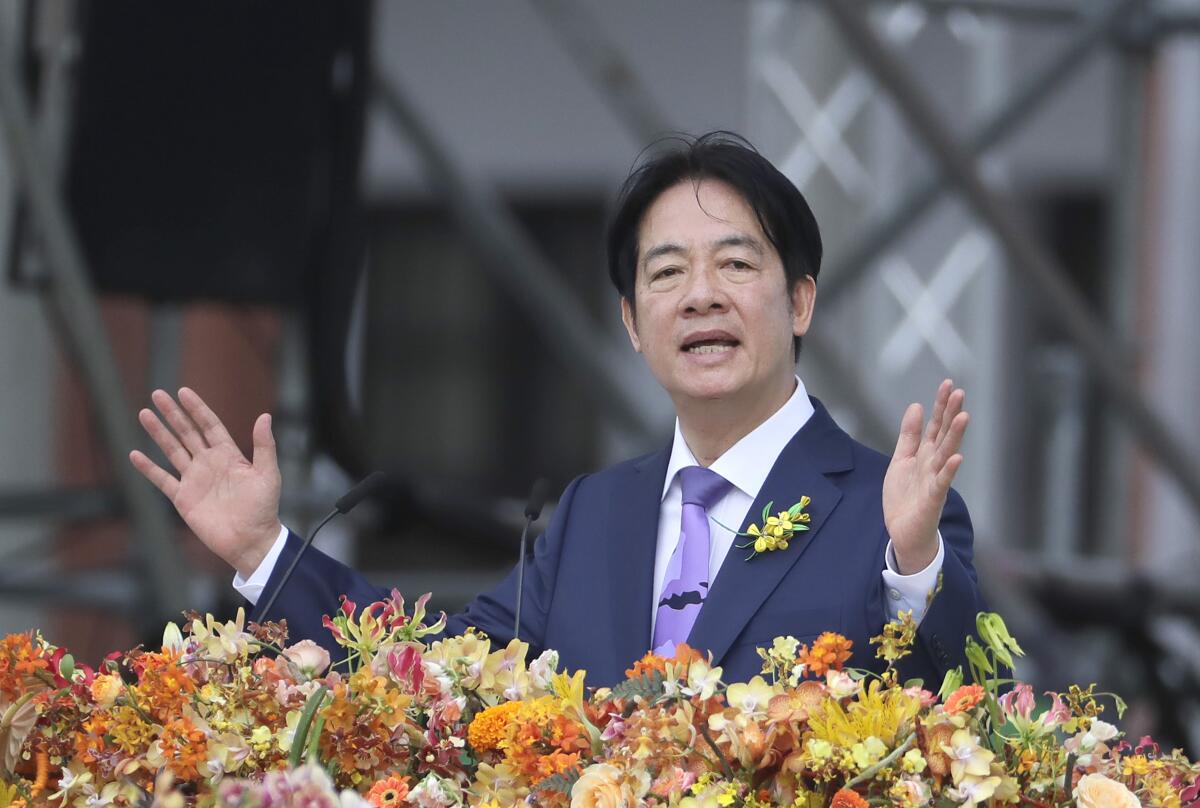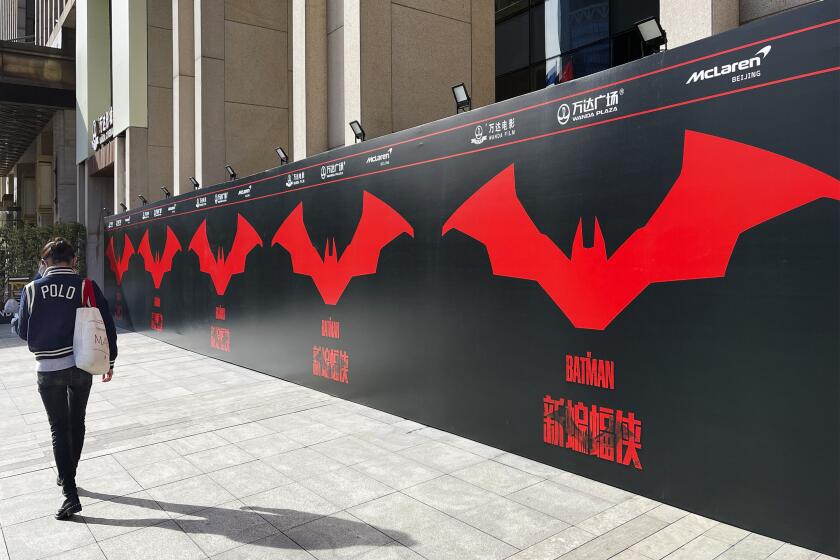Taiwan scrambles jets and puts missile, naval and land units on alert over China’s military drills

- Share via
TAIPEI, Taiwan — Taiwan scrambled jets and put missile, naval and land units on alert Thursday over Chinese military exercises being conducted around the self-governing island where a new president took office this week.
China’s military said its two-day exercises around Taiwan were punishment for separatist forces seeking independence. Beijing claims Taiwan is part of China’s territory and the People’s Liberation Army sends navy ships and warplanes into the Taiwan Strait and other areas around the island almost daily to wear down Taiwanese defenses and intimidate its people, who firmly back their de facto independence.
China’s “irrational provocation has jeopardized regional peace and stability,” Taiwan’s Defense Ministry said in a statement. It said Taipei will seek no conflicts but “will not shy away from one.”
“This pretext for conducting military exercises not only does not contribute to peace and stability across the Taiwan Strait, but also shows its hegemonic nature at heart,” the statement said.
In his inauguration address Monday, Taiwan’s President William Lai called for Beijing to stop its military intimidation and pledged to “neither yield nor provoke” the mainland Communist Party leadership.
The president, also known as Lai Ching-te, has said he seeks dialogue with Beijing while maintaining Taiwan’s current status and avoiding conflicts that could draw in the island’s chief ally, the United States, and other regional partners such as Japan and Australia.
The People’s Liberation Army’s Eastern Theater Command said that the land, navy and air exercises around Taiwan are meant to test the navy and air capabilities of the army’s units and their joint strike abilities to hit targets and win control of the battlefield.
“This is also a powerful punishment for the separatist forces seeking ‘independence’ and a serious warning to external forces for interference and provocation,” said the statement on the social media site Weibo.
The Chinese army released a map of the intended exercise area, which surrounds Taiwan’s main island at five points and other places including the Taiwanese-controlled island groups of Kinmen and Matsu near the Chinese coast.
China’s coast guard also said in a statement that it organized a fleet to carry out law enforcement drills near two islands close to Kinmen and Matsu.
While China has termed the exercises punishment for Taiwan’s election result, the pro-democracy Democratic Progressive Party has now run the island’s government for more than a decade, although the pro-China Nationalist Party took a one-seat majority in the parliament.
Speaking in Australia, U.S. Marine Lt. Gen. Stephen Sklenka, the deputy commander of the U.S. Indo-Pacific Command, called on Asia-Pacific nations to condemn the Chinese military exercises.
“There’s no surprise whenever there’s an action that highlights Taiwan in the international sphere the Chinese feel compelled to make some kind of form of statement,” Sklenka told the National Press Club of Australia in the capital, Canberra, in a reference to Monday’s presidential inauguration.
“Just because we expect that behavior doesn’t mean that we shouldn’t condemn it, and we need to condemn it publicly. And it needs to come from us, but it also needs to come, I believe, from nations in the region. It’s one thing when the United States condemns the Chinese, but it has a far more powerful effect, I believe, when it comes from nations within this region,” Sklenka added.
Japan’s top envoy weighed in while visiting the U.S., saying Japan and Taiwan share values and principles, including freedom, democracy, basic rights and rule of law.
Taiwan “is our extremely important partner that we have close economic relations and exchanges of people [with], and is our precious friend,” Foreign Minister Yoko Kamikawa told reporters in Washington, where she held talks with Secretary of State Antony J. Blinken.
She said she and Blinken discussed Taiwan and the importance of the Taiwan Strait, one of the world’s most important waterways for shipping, remaining peaceful.
Bodeen writes for the Associated Press. AP reporters Rod McGuirk in Melbourne and Mari Yamaguchi in Tokyo contributed to this report.
More to Read
Sign up for Essential California
The most important California stories and recommendations in your inbox every morning.
You may occasionally receive promotional content from the Los Angeles Times.










